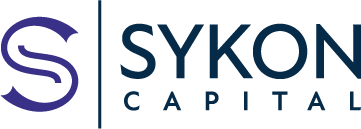The 401(k) Match: Should You Skip It?

Imagine your boss handing you a bonus and you saying "nah, I’m good." That’s what skipping your 401(k) match is like.
In this post, we’ll break down why using your company's 401(k) match might be one of the easiest financial wins you can make, and when it might make sense to think twice.
Who We Are:
We’re financial advisors who specialize in helping tech employees manage RSUs, stock options, and other forms of equity compensation.
Follow my posts on LinkedIn for market updates and real-world wealth strategies for high-earning professionals.
We’ve written a few other blogs about company benefits. You can check them out here:
What is a Company 401(k) Match?
A company 401(k) match means your employer gives you extra money for your retirement savings, simply for participating. It's often called "free money," and for good reason.Example:
If you make $150,000 and your company matches 4%, that’s $6,000 a year added to your retirement fund. Over 25 years (before factoring investment growth), that’s $150,000 you didn’t have to save yourself.
How It Fits Into Your Bigger Financial Plan
Your company benefits aren't just perks, they’re a key part of your financial foundation.A real financial plan helps you answer:
"Am I saving enough to live the life I want, even through the unexpected?"
A good financial plan:
- Brings your goals, income, expenses, investments, and risks into one clear picture.
- Helps you balance what you spend today with what you’ll need tomorrow.
- Gives you a proactive roadmap for big life moments (buying a home, sending kids to college, retiring).
Tax Implications of Saving in Your 401(k)
The money you (and your employer) put into a 401(k) grows tax-deferred, meaning you don’t pay taxes until you withdraw it.But how it’s taxed depends on the type:
Traditional 401(k):
- Contributions are pre-tax. (not subject to income tax when deposited)
- Withdrawals are taxed as ordinary income. (at your income tax rate during retirement)
- Required Minimum Distributions (RMDs) start at age 73
- Contributions are after-tax. (you pay taxes before contribution at your current income tax rate)
- Withdrawals are tax-free. (you heard me, no taxes at retirement age)
- No RMDs during your lifetime
Strategies (like Roth conversions or partial withdrawals) can save you thousands, but they require proactive planning.
So, Should You Take the Match?
In personal finance, there are things you can control and things you can't.You can't control the stock market.
You can control how much you save, how early you start, and whether you maximize benefits like your 401(k) match.
TLDR:
Matching your company's 401(k) contribution is one of the simplest, smartest moves you can make.
Don’t leave free money on the table.
Want to see if you're maximizing your benefits and your future?
We help tech professionals like you navigate RSUs, taxes, 401(k) choices, and more.
Set up a 15 minute chat with Alex: https://calendly.com/alex-sykoncap/talk-to-alex
Get clarity. Get confident. Get moving toward your future.
